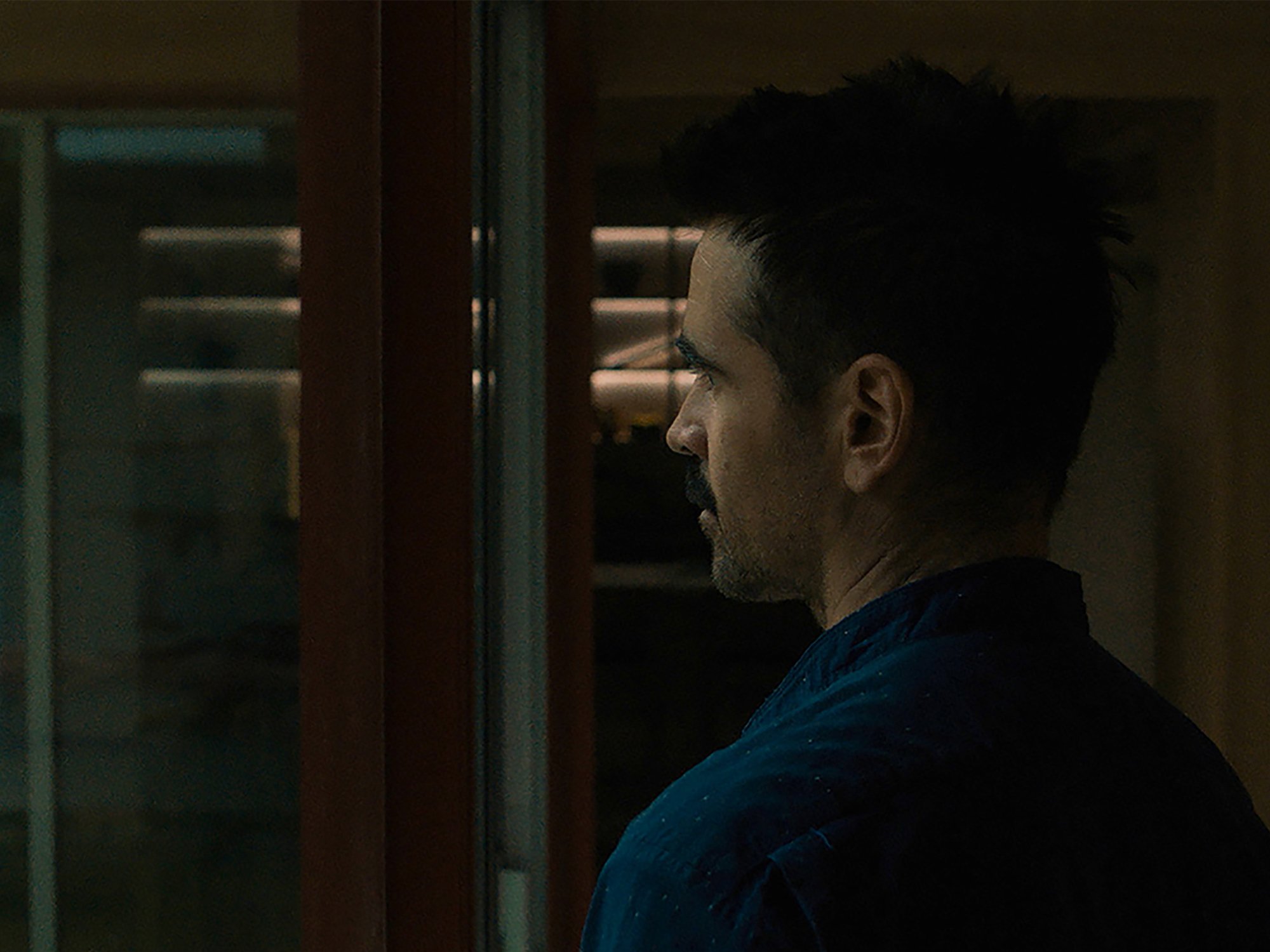Sundance 2022 Film Review: After Yang
Kogonada returns to expand his humanist scope with the lovely, meditative After Yang
My 2022 Sundance Film Festival coverage begins here. In 2017, the pseudonymous Kogonada made waves at Sundance with his intimate character drama, Columbus. Five years later, the prominent video essayist and filmmaker has returned with After Yang, a meditative sci-fi stunner no less affecting than his beautifully-wrought debut. A deeply emotional examination of identity, purpose, and the memory of all things, After Yang tackles its themes — and its surprising thread on what it means to be Asian and Asian American — with grace and craft. Minor spoilers ahead…
After Yang, filmmaker and supercut craftsman Kogonada’s second feature, leaves behind architectural marvels for headier sci-fi space, but keeps its predecessor’s heart of humanist drama. Columbus, the essayist-turned-director’s first film, was a gentle tale of human connection framed by sparsity and stillness, revolving around two individuals at formative crossroads bound by their love for architecture, gazing into uncertain futures. Flash forward five years to another Sundance, and After Yang - adapted from writer Alexander Weinstein’s short fiction “Saying Goodbye to Yang” - explodes those intimate kernels into musings no less poignant, and no less in tune with the human condition. It’s a story of “technobeings,” artificial intelligence, and clones, but also one that lyrically navigates the depths of loss, discovery, and memory.
In an indeterminable future, an android named Yang (Justin H. Min) malfunctions. As a “technosapien” - a brand of ultra-realistic humanoid AIs - Yang was procured by the Fleming family to be a companion and cultural tether for their adopted Chinese daughter, Mika (Malea Emma Tjandrawidjaja). After the android glitches out during a glorious online dance-off that serves as the film’s opening credits, family patriarch and tea merchant Jake (Colin Farrell) drags the lifeless robot - who is affectionately referred to as gege (哥哥) by Mika - to a local tech center to be repaired. When it becomes abundantly clear that Yang will likely never wake up again, Jake unexpectedly begins to mourn: It’s less like discarding a broken-down Roomba, and more like losing a family member.
After Yang is perhaps the first sci-fi film in years to view technology through a non-judgmental lens, favoring what can only be described as a wistful, cozy blanket. Avoiding the blunt force lectures on the dangers of plugging in, the narrative contemplates our relationship with the material and the digital; it highlights our love for technology and our dependence upon it, but it also posits a future where these creations may possibly return the same affection. As Jake sifts through Yang’s gleaming memory palace, he explores the android’s scattered recollections of the family, his bond with Mika, while also piecing together a hidden history involving a mysterious girl (Haley Lu Richardson) that reaches far before he ever came into the Flemings’ lives.
“…[After Yang] highlights our love for technology and our dependence upon it, but it also posits a future where these things may possibly return the same affection.”
The mixed heritage nuclear family at the center of After Yang - Jake is white, Kyra (Jodie Turner-Smith) is Black, and their daughter Mika is Chinese - seemingly occupies a postracial milieu, but the question of culture and identity isn’t glossed over; in fact, it’s here that the film explores its most surprising thread. While perusing Yang’s memory files, Jake stumbles upon a tender moment between himself and his robotic charge, striking a chord that many second-generation immigrants - myself included - would find poignant. Yang, like many Asian Americans stuck in-beteween, wonders about his own identity, a role digitally forged to help Mika connect with her roots. Does he count as Chinese? His ruminations are achingly real: “I wish Chinese tea wasn’t just about facts for me…I wish I had a real memory of tea in China. Of a place. Of a time.” I can relate. I’m able to regurgitate facts about China, I can speak my broken Mandarin, and I visit family in Shanghai once every few years, but exactly how Chinese am I? In Yang and his existential musings, Kogonada extrapolates the cultural divide that many Asian Americans feel between their American identity and their heritage. After Yang doesn’t exactly give easy answers, but one thing is for absolute certain: Yang - through his experiences and through his uncertainties - is as human as we are, even as we’re consistently reminded that he is a machine.
It’s easy to assume that After Yang would ooze with sprawling dialogue due to its philosophical core, but that is distinctly not Kogonada’s style. A scholar of minimalist masters such as Yasujiro Ozu and Robert Bresson, the director relays sentimentality and introspection through silent inquiry and precise composition. After Yang isn’t as tightly controlled or impeccably staged like its predecessor Columbus - Kogonada has learned to relax his craft by a hair - but its storytelling through unhurried pacing and sparse-but-gorgeous visual language remains consistent and captivating. And at the center of it all? A marvelously subdued performance by Colin Farrell, whose mid-career renaissance has found him embracing the nuanced everyman; it’s a quiet role that peels away to mixed notes of melancholy and sweetness. Unsurprisingly, Farrell’s understated turn is balanced by Haley Lu Richardson’s instant shot of warmth as the center of Yang’s mystery memory, every bit as magnetic and radiant as she was in Columbus.
“There’s no something without nothing,” Yang observes at one point. Kogonada’s After Yang is as meditative as they come; a sci-fi ode to the sneaking, crushing power of grief counteracted by waves of reassurance. It’s an airy, tactile experience that belies its weighty power until the credits start rolling, drilling to the center of what it means to be human, what it means to be Asian, and what it means to be alive. When you witness something’s vast capacity for love and the ability to be loved, can you still deny its personhood? After Yang will gently break your heart, only to mend it with a quiet balm.













